Problem-Solving Skills Easy Word Problems Worksheets for Ages 3-8
10 filtered results
-
From - To
Boost your child's critical thinking and mathematical abilities with our Problem-Solving Skills Easy Word Problems Worksheets for Ages 3-8. Designed to engage young learners, these printable worksheets focus on simple, relatable word problems that develop essential problem-solving skills. Each activity encourages logical reasoning and practices basic math operations, supporting young minds in a fun and interactive way. Whether counting objects or solving simple puzzles, our worksheets make learning enjoyable and effective. Perfect for parents and educators, these resources help build a strong foundation in early math skills. Enhance your child's learning journey with our expertly crafted worksheets today!
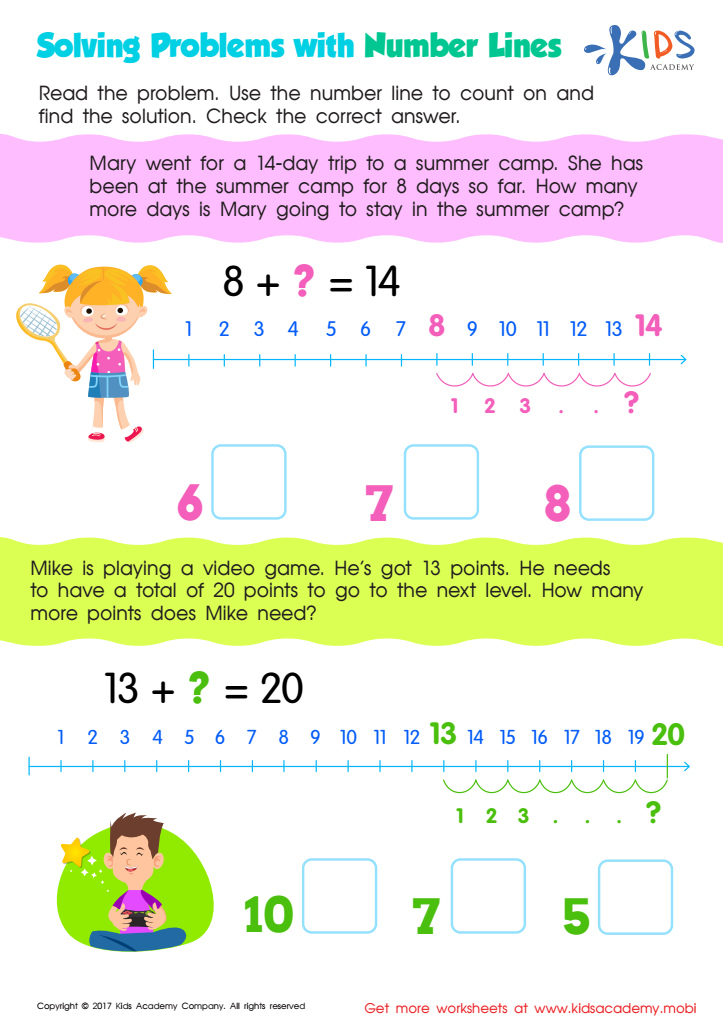

Solving Problems: Number Lines Worksheet
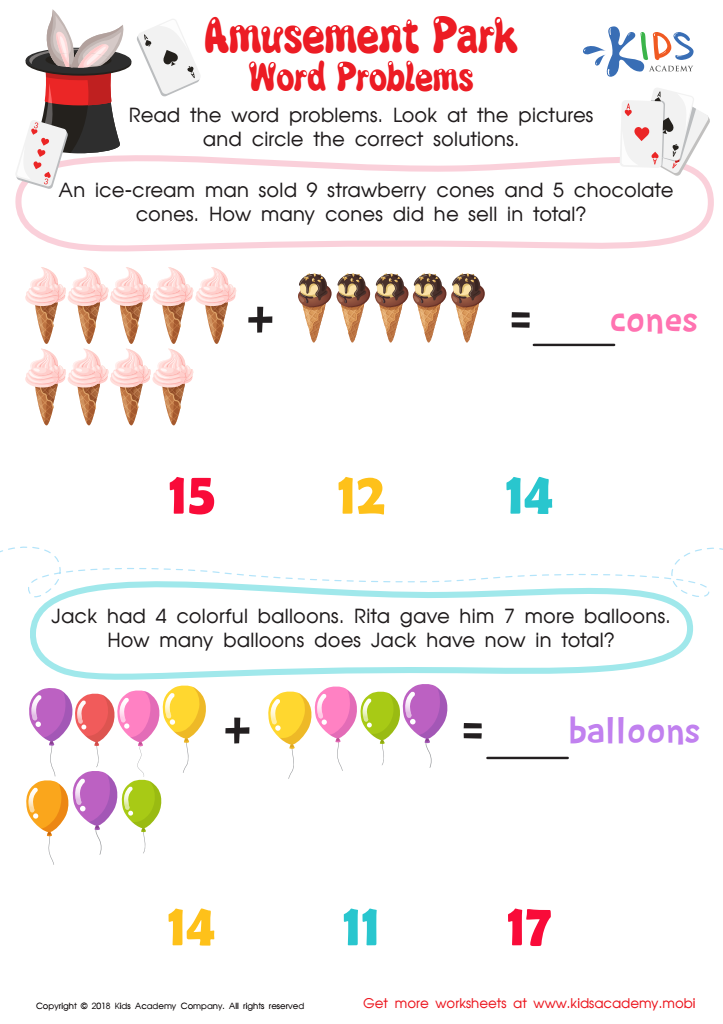

Amusement Park Word Problems Worksheet
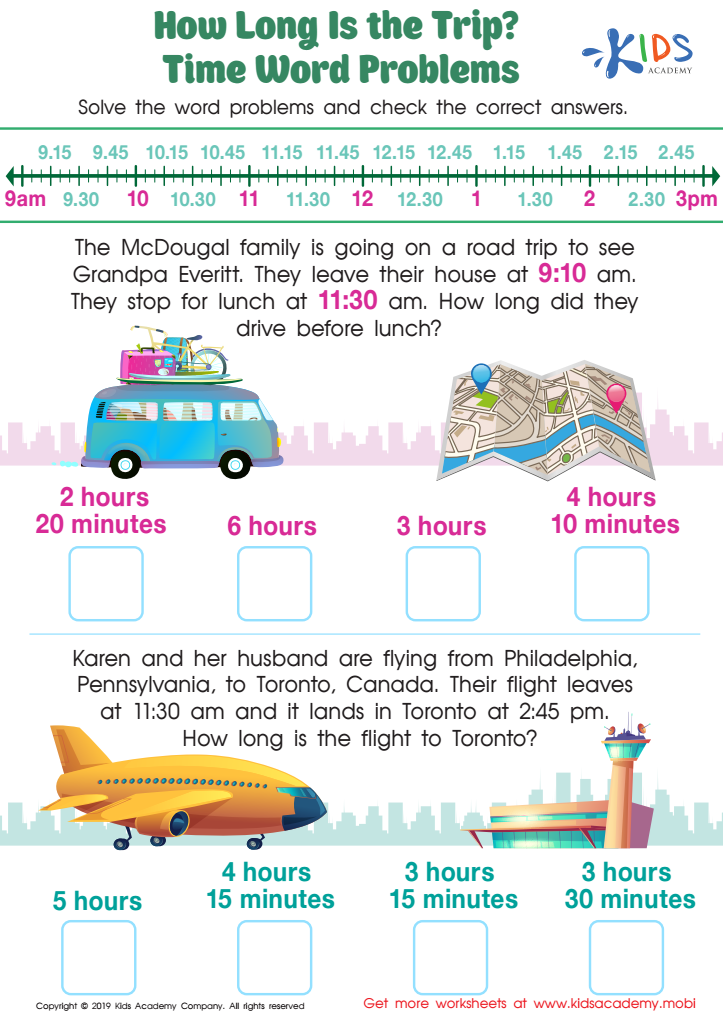

How long is the Trip? Time Word Problems Worksheet
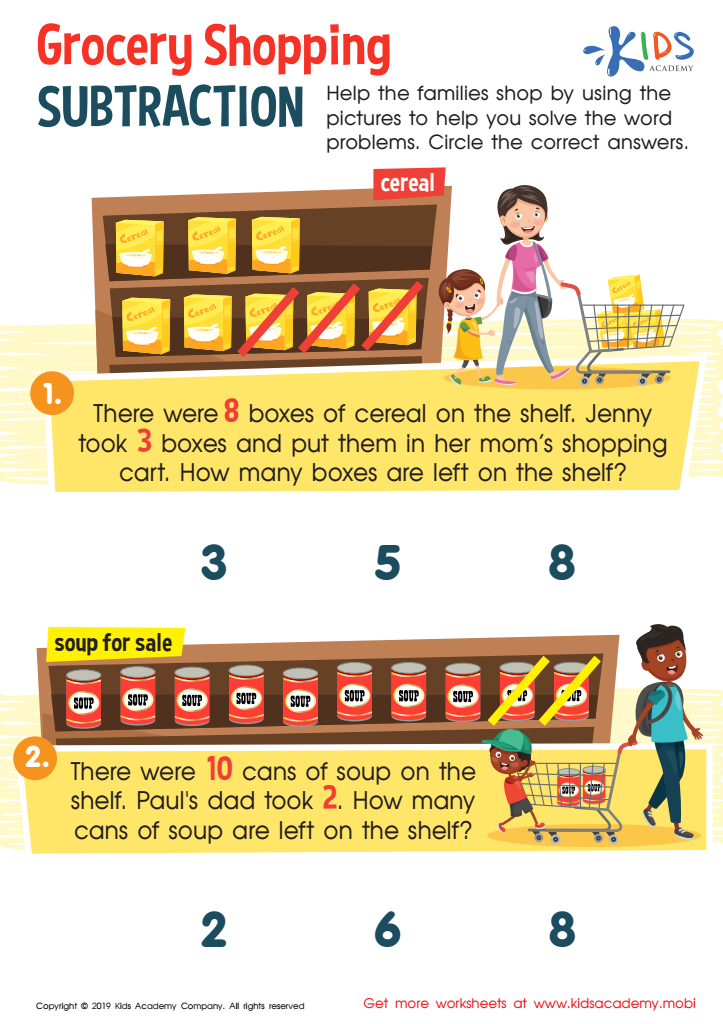

Grocery Shopping Subtraction Worksheet
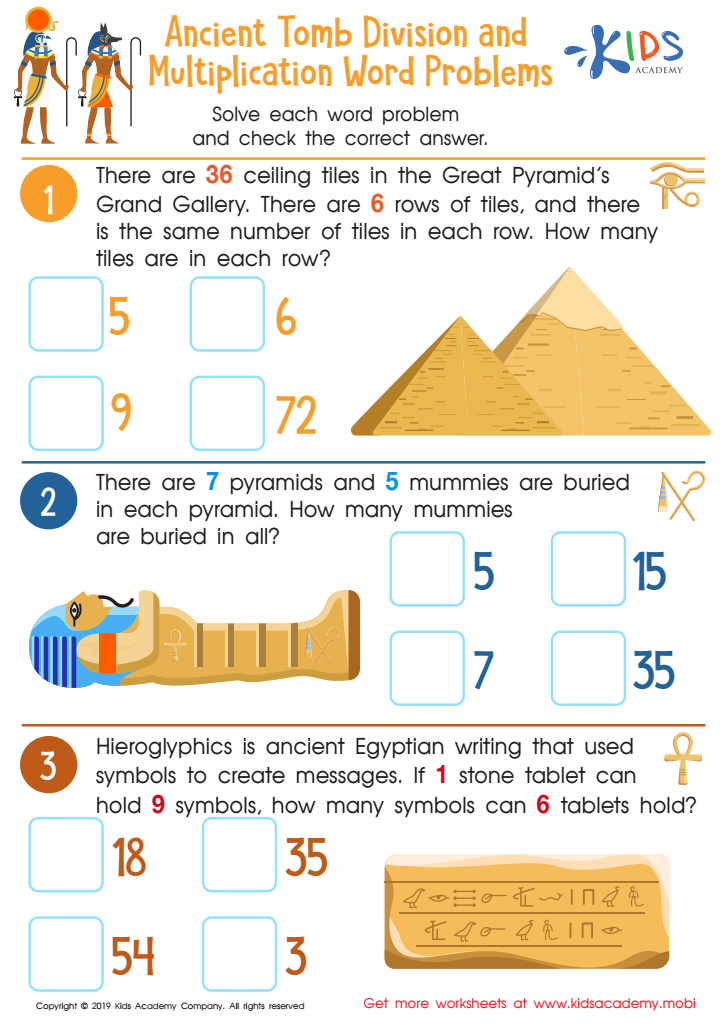

Ancient Tomb Division and Multiplication Word Problems Worksheet
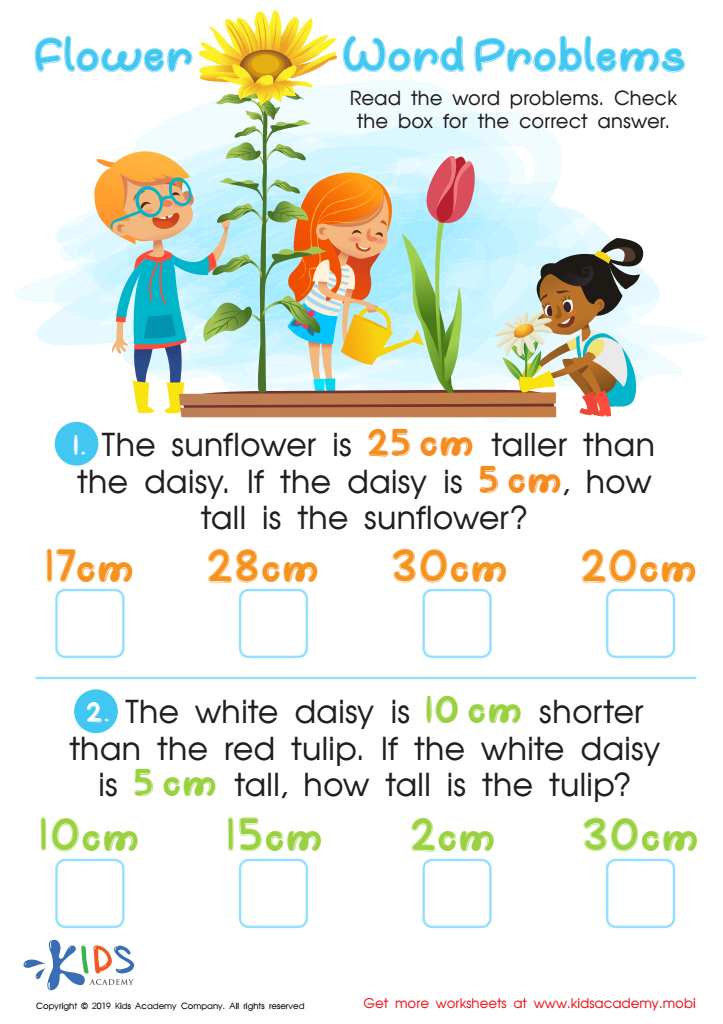

Flower Word Problems Worksheet
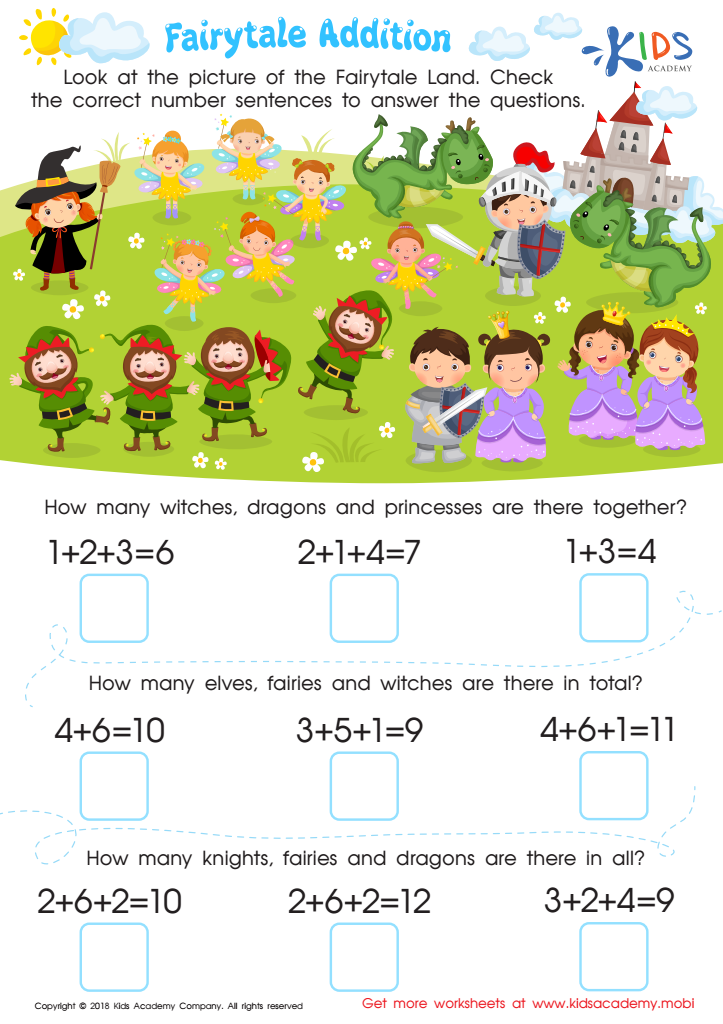

Fairytale Addition Worksheet
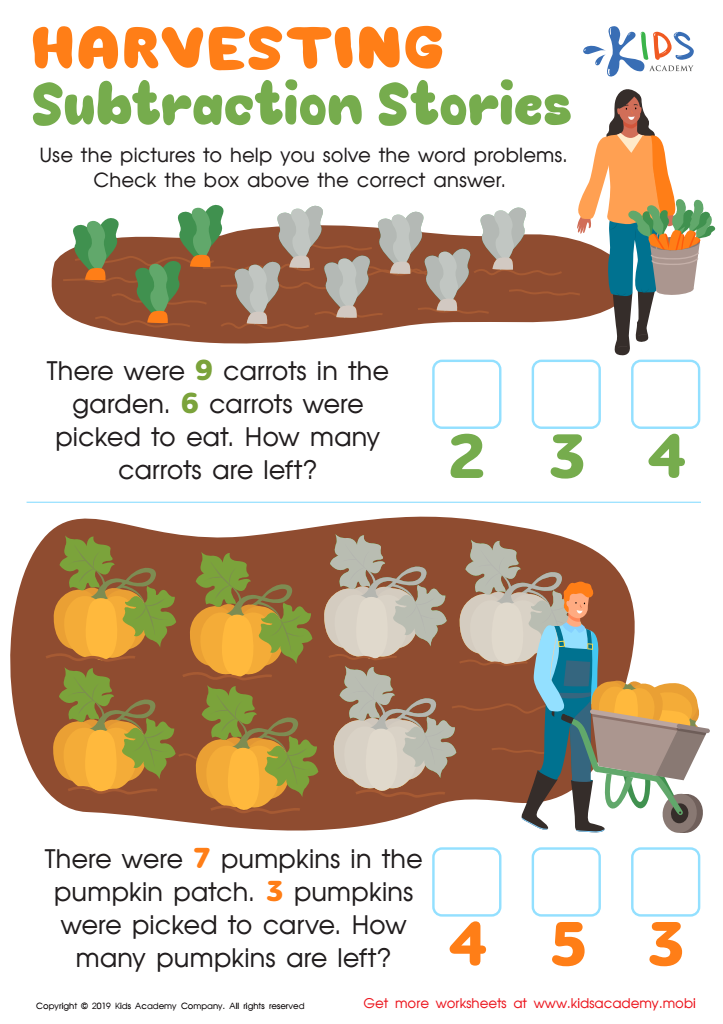

Harvesting Subtraction Stories Worksheet
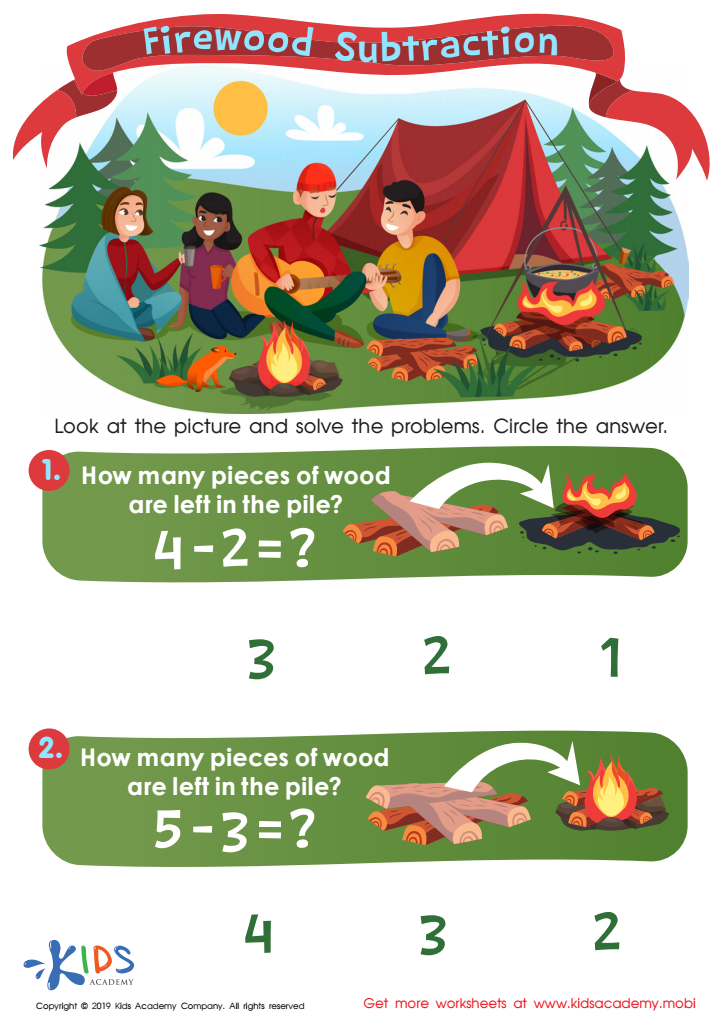

Firewood Subtraction Worksheet
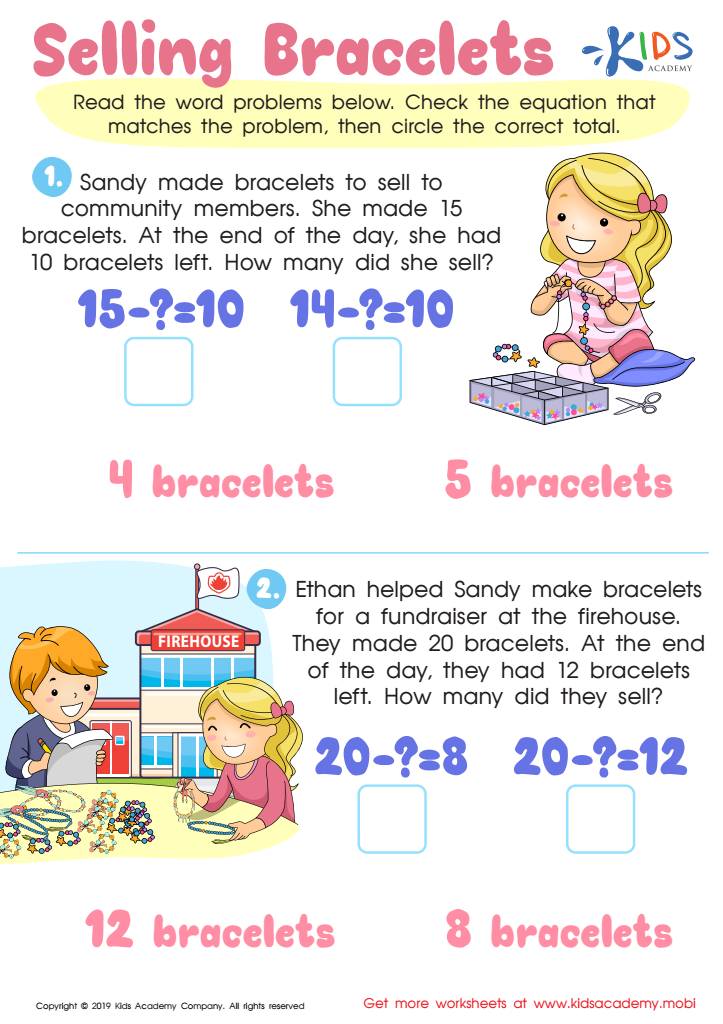

Selling the Bracelets Worksheet
Developing problem-solving skills through easy word problems for children aged 3-8 is pivotal for several reasons. Firstly, these skills lay the foundation for critical thinking and logical reasoning. At this formative stage, children's brains are like sponges, and introducing problem-solving tasks helps them apply logic and reasoning to real-life situations. This not only boosts their intellectual growth but also enhances cognitive functions such as memory, concentration, and processing speed.
Secondly, word problems aid in linguistic development. Reading and understanding problems improve children's comprehension, vocabulary, and communication skills. These problems also make learning interactive and enjoyable, which fosters a positive attitude towards education.
Moreover, grasping problem-solving early helps build confidence and independence in children. Successfully solving challenges enhances self-esteem, making them more likely to take on new academic and life challenges.
Additionally, these skill sets are closely tied to real-world scenarios, providing practical applications. A child who can solve word problems using basic math, logical steps, and comprehension can easily navigate everyday tasks like time management, budgeting, and decision-making.
Parents and teachers play a crucial role in nurturing these abilities. By engaging children in problem-solving activities, they not only meet educational standards but also contribute holistically to a child's overall development, setting them up for future success.
 Assign to My Students
Assign to My Students









.jpg)











